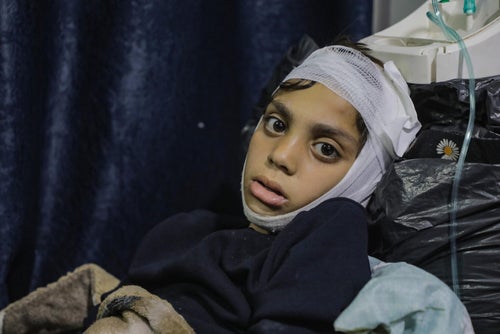After nearly a year of enduring immense loss and trauma, the children of Gaza are now facing another devastating challenge as polio reemerges in Gaza after 25 years.
The first case was tragically detected in an unvaccinated 10-month-old baby, prompting the Ministry of Health in Gaza to declare the Strip a polio outbreak zone in July 2024.
Polio, a highly contagious viral disease, primarily affects children under five. It can invade the nervous system and cause paralysis. Sadly, there is no cure for polio; it can only be prevented through vaccination, which is crucial in the fight against polio.
UNICEF is delivering 1.6 million polio vaccines to the Gaza Strip for a campaign that will vaccinate at least 640,000 children under 10 in two rounds throughout September. We’re working alongside the Palestinian Ministry of Health (MOH), the World Health Organisation (WHO), the United Nations Relief and Works Agency for Palestine Refugees (UNRWA), and other partners to administer two drops of the novel oral polio vaccine type 2 (nOPV2).
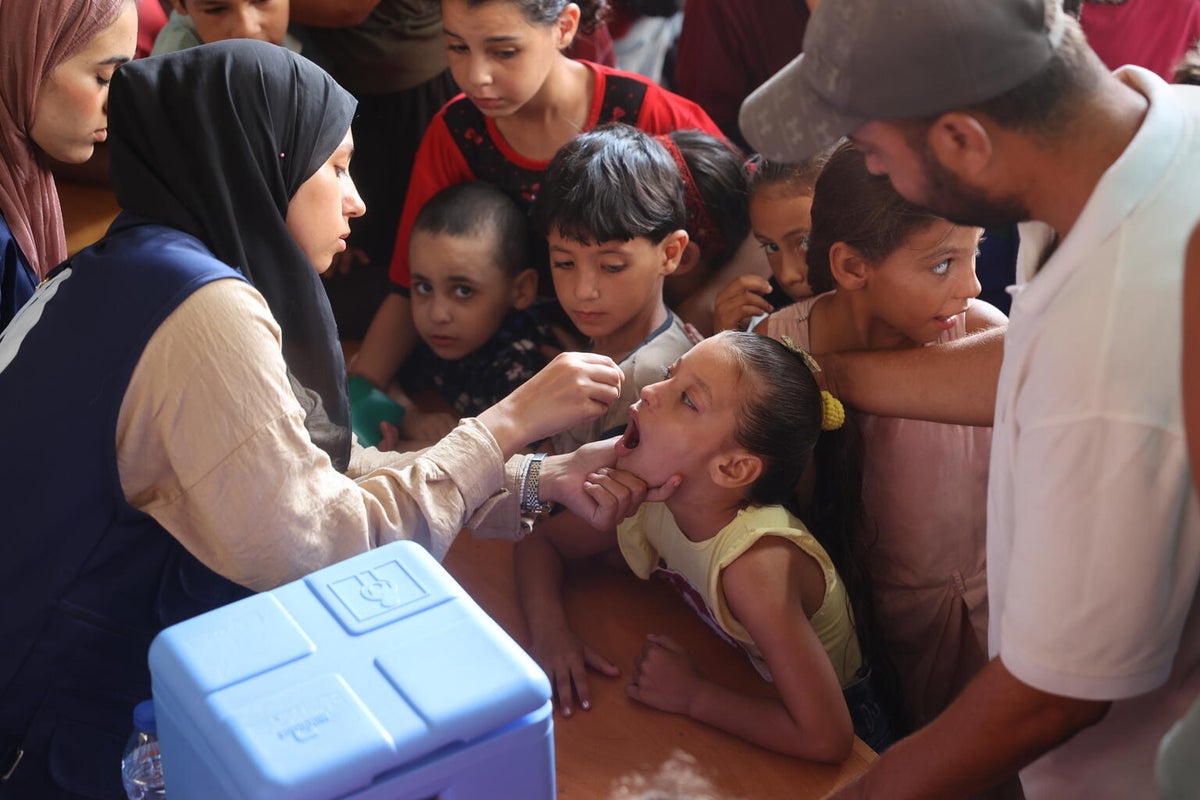
How does polio spread?
Highly contagious, polio spreads easily through sewage and contaminated water, especially in areas with poor hygiene and sanitation. Outbreaks often occur due to weak health systems and low immunisation coverage.
In Gaza, the virus was detected following a UNICEF-supported routine environmental surveillance, where six out of seven samples collected in late June tested positive for polio. These samples were taken from sewage collection points in overcrowded communities that have been displaced multiple times.
To stop the outbreak and prevent the international spread of polio, at least 95 per cent vaccination coverage is needed during each round of the campaign.
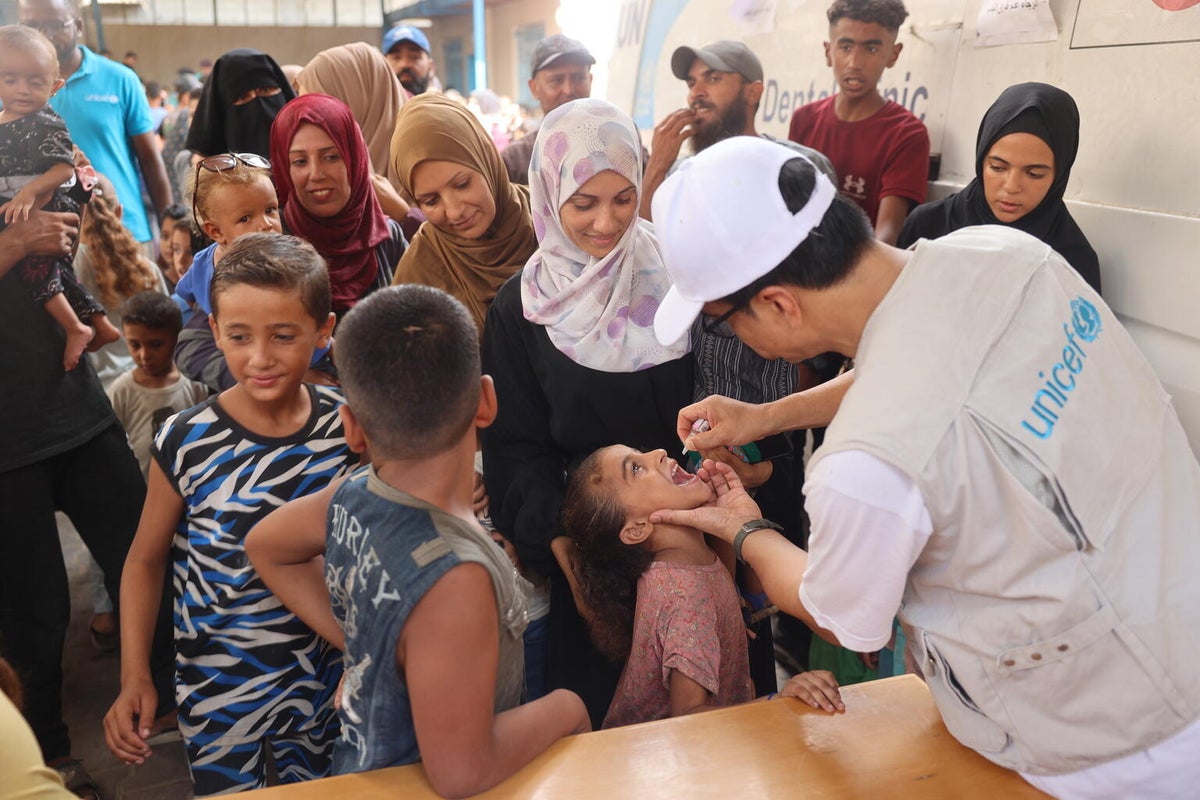
What are the symptoms of polio?
According to the WHO, up to 90 per cent of people infected with polio experience no or mild symptoms, making the disease often go unrecognised. For others, symptoms can include fever, fatigue, headache, vomiting, stiffness in the neck, and pain in the limbs. These symptoms typically last for two to 10 days with almost complete recovery.
However, in severe cases, the virus can cause permanent paralysis, usually of the legs, and can occur within hours of infection. Devastatingly, 5 to 10 per cent of those paralysed may die.
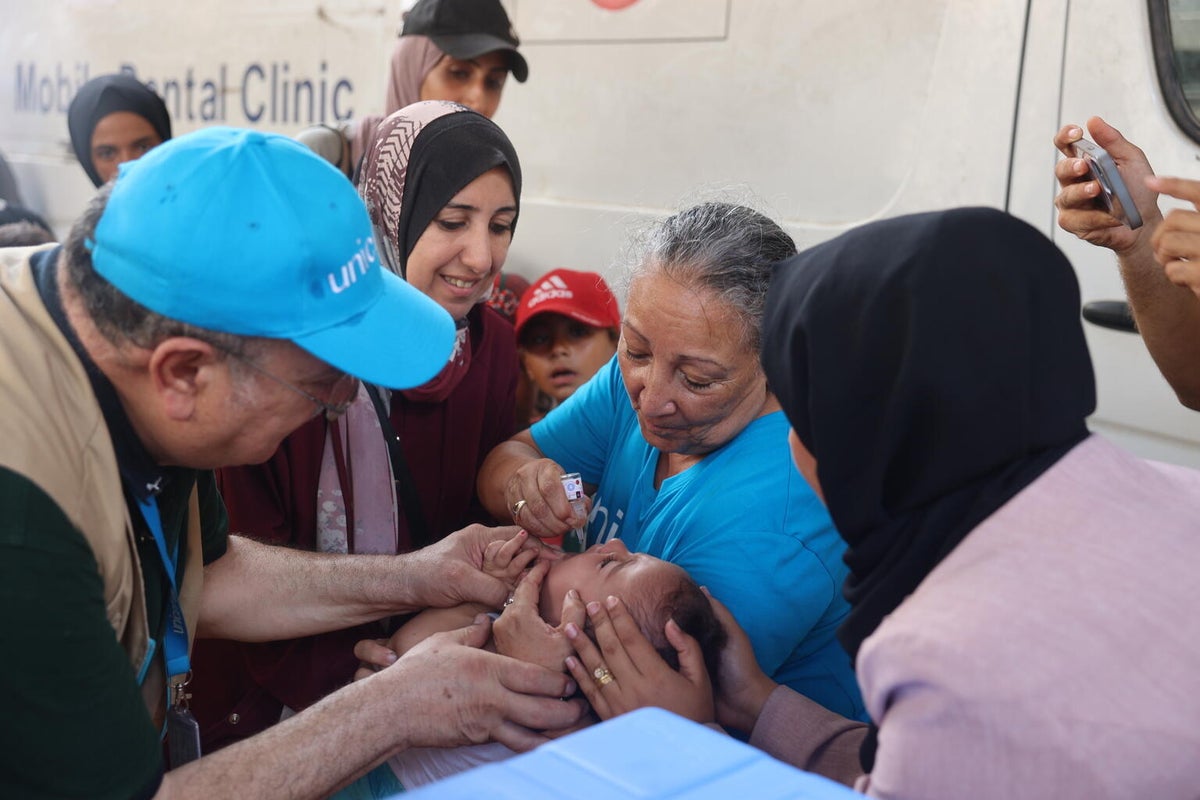
UNICEF’s role in vaccinating children against polio
As the largest buyer of vaccines in the world, UNICEF vaccinates almost half the world’s children under five each year. During outbreaks like this, UNICEF leads large-scale immunisation campaigns to boost immunity and stop the disease spreading.
In Gaza, we have facilitated the delivery of 1.6 million doses of the novel oral polio vaccine type 2 (nOPV2) with an additional 400,000 doses expected in late September. UNICEF has also provided cold chain equipment to ensure vaccines are stored at the required temperature from manufacture to vaccination, including cold storage facilities, refrigerated fridges and cold boxes.
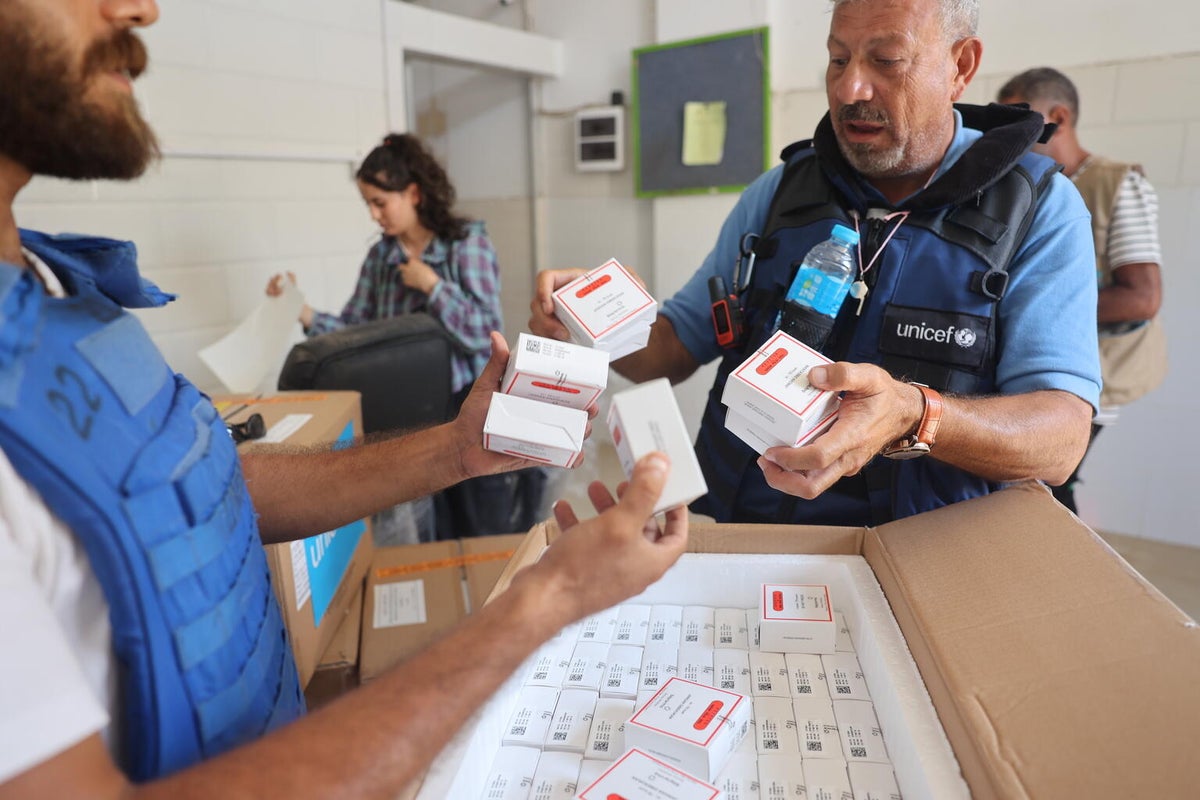
What it takes to immunise 640,000 children against polio in Gaza
The vaccination campaign involves 708 teams at hospitals and primary healthcare centres. Over 2,100 health and community outreach workers have been trained to administer the vaccines and educate communities about the campaign, including reaching displaced children and those in hard-to-reach areas.
UNICEF and our partners are calling on all parties to pause fighting to allow children and their families to safely access healthcare and for community outreach workers to reach children who cannot access health facilities for polio vaccination. Without humanitarian pauses, the campaign’s delivery, which is already being implemented under highly constrained and challenging circumstances, will not be possible.
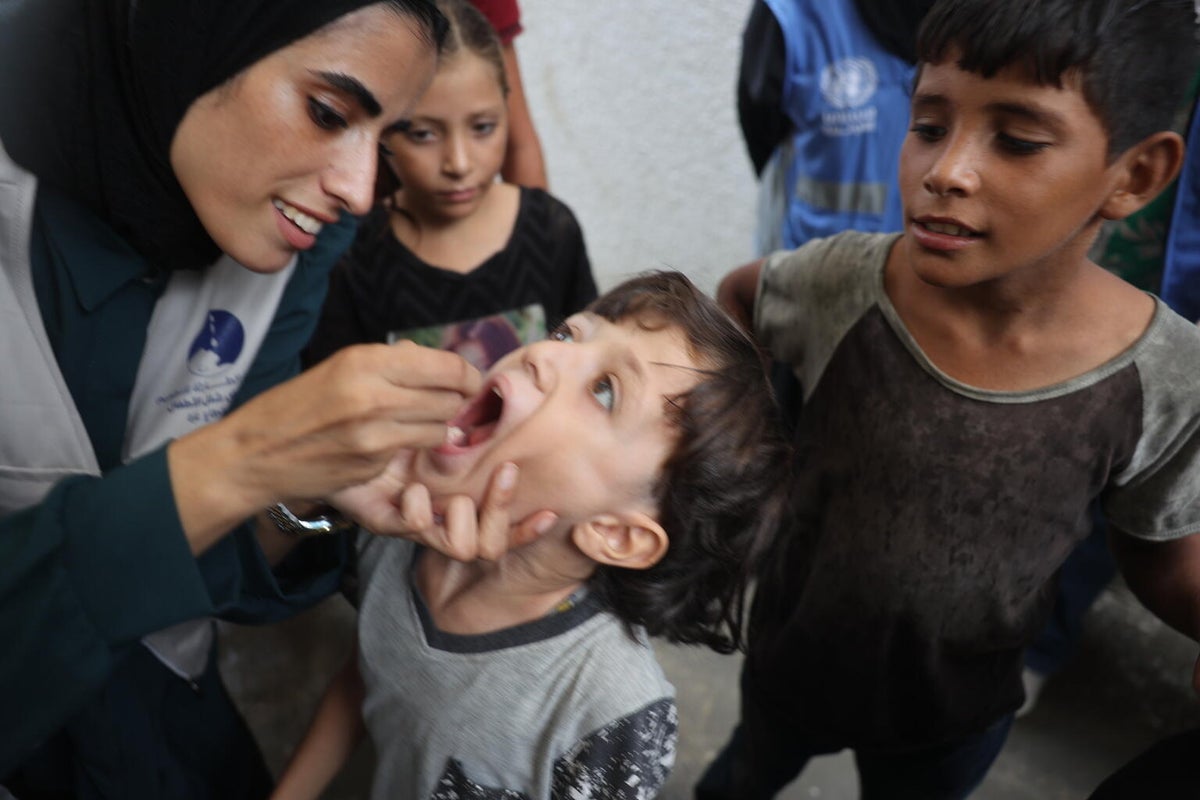
Children of Gaza Crisis
Unrelenting violence and looming famine threaten the lives of over a million children. Donate today
Related articles
Stay up-to-date on UNICEF's work in Australia and around the world








